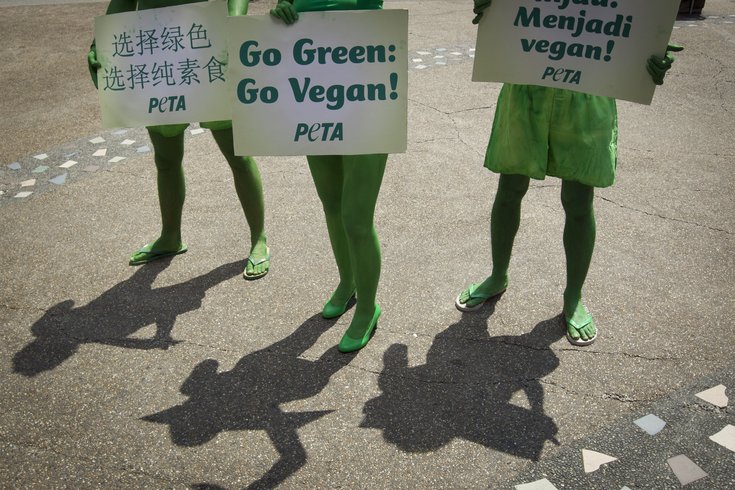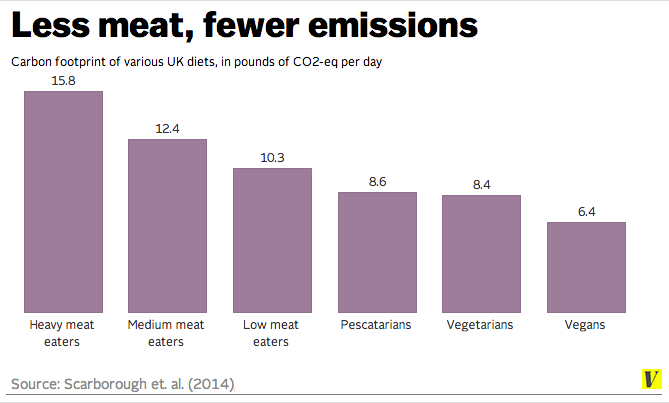
February 24, 2015
 Vincent Thian/AP
Vincent Thian/AP
Members of People for the Ethical Treatment of Animals (PETA) hold placards to urge people to switch to a vegetarian diet.
You've undoubtedly heard that cutting back on meat consumption may lead to better health.
If that doesn't sway you to pass up the cheesesteaks and Chick-fil-A for a day - or forever - might you consider the environment?
That's exactly what the U.S. Department of Agriculture is asking of Americans, as outlined in the Scientific Report of the 2015 Dietary Guidelines Advisory Committee, which was sent to the secretaries of the U.S. Department of Health and Human Services (HHS) and USDA earlier in February.
"Vegans have the lightest footprint, but even eating less meat makes a difference." - Vox
In the report, the U.S. nutritional panel advised Americans to consider eating less meat for environmental reasons.
"A diet higher in plant-based foods … and lower in calories and animal-based foods is more health promoting and is associated with less environmental impact than is the current U.S. diet," the Dietary Guidelines Advisory Committee said.
According to a 2014 study, becoming a vegetarian could cut your food carbon footprint in half compared to that of a heavy meat eater, and abstaining from eating all animal products - i.e. becoming a vegan - could compute to a carbon footprint reduction of about 60 percent compared to that of a meat-heavy diet.
Vox.com went deeper with the report to explain the reasons for the eco-conscience recommendation.
Food production is responsible for about 25 percent of the greenhouse-gas emissions heating up the planet. And scientists have long known that meat has a bigger climate footprint than fruits and vegetables do — partly because meat takes more energy to produce, but also because cows tend to burp up a lot of methane. (Cows, in turn, have a larger impact than pigs or chickens.)
Read more of the Vox.com article here.
